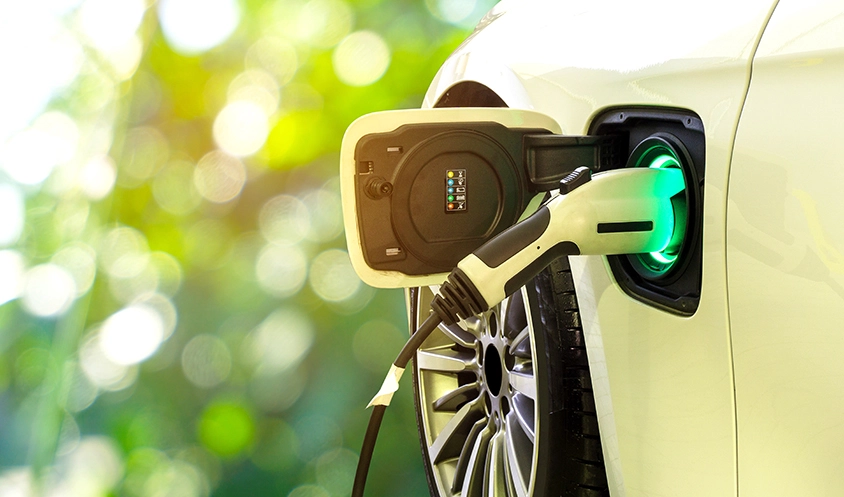Electric cars have become increasingly popular due to their environmentally friendly nature and low operating costs. But a common question that often arises is how long an electric car can be expected to last.
An important aspect to consider is the lifespan of the electric car batteries, which is often measured in mileage and can vary from 16,000 to 350,000 miles, depending on factors such as driving habits, charging frequency, climate, and cooling system.
The answer is not entirely straightforward, but we can provide an estimate based on research and industry experience.
Lifespan of an electric car
Generally, a modern electric car can be expected to last at least 8 to 10 years or 100,000-200,000 kilometers before it begins to show signs of serious battery wear or other parts. Some electric cars have been shown to last even longer with proper maintenance and careful use.
Key factors affecting the lifespan of an electric car:
EV battery lifespan:
Understanding how long the electric car’s battery lasts, focusing on electric car battery life, and how to extend its lifespan is crucial.
Lithium-ion batteries, used in most electric cars today, have a limited lifespan determined by the number of charging cycles, the quality of maintenance, and ev battery warranty. The understanding of ev battery lifespan is essential for electric car maintenance schedules and warranty considerations.
Maintenance and service:
Regular service and maintenance of the car’s mechanical and electrical systems are essential to extend its lifespan.
Following the manufacturer’s recommendations for service intervals, performing necessary repairs on time, and correctly managing the need to replace the battery can help prevent major issues.
Taking care of the car’s battery through proper maintenance and usage is key to maintaining its performance and lifespan.
Driving style and usage:
How the car is driven and used can significantly affect its lifespan. For example, aggressive driving, heavy loads, and frequent fast charging can wear out the car’s components and reduce its lifespan.
Climate conditions:
Extreme temperatures, both cold and heat, can affect both the car’s battery and other components. Cold weather can reduce the battery’s efficiency and range, while high temperatures can accelerate the degradation of the car’s electronics and mechanical parts.
Manufacturing quality:
The quality of materials and the manufacturing process can also affect the lifespan of an electric car. Cars made with high-quality components and built to high standards tend to be more durable and have a longer lifespan.
Factors affecting battery lifespan:
Many factors affect the battery’s lifespan, including the quality of the electric car’s battery pack, charging times, and the climate conditions under which the car is used.
EV batteries come in various types, each with its own set of characteristics that influence performance, durability, and maintenance needs.
Understanding these factors and how they affect the battery’s lifespan, especially considering how the EV battery pack responds to different climate conditions, can help maximize its durability and function.
Moreover, the diversity and technological advancements in EV battery packs play a crucial role in determining their lifespan, highlighting the importance of choosing the right battery technology and maintenance practices.
Tips for optimizing your electric car battery:
Charge properly:
Avoid charging the battery to 100% or completely draining it regularly. Keeping the battery within a middle charge level, usually between 20% and 80%, can reduce wear and extend its lifespan.
Avoid excessive fast charging:
Fast charging can be convenient when you’re on the go, but excessive use of fast chargers can negatively affect the battery’s long-term durability. Try to use fast chargers only when absolutely necessary.
Keep the battery cool:
Both extreme cold and heat can negatively affect the battery’s performance and lifespan, and can accelerate capacity loss per year.
Park your electric car in the shade when possible and avoid exposing it to extreme heat for extended periods.
Regular service:
Follow the manufacturer’s recommendations for service and maintenance of your electric car. This includes regularly checking the battery’s health and performance.
Avoid mishandling your EV:
Subjecting the battery in your electric car to shocks or damage can affect its function and lifespan.
Summary:
Electric car batteries work by utilizing a pack of thousands of individual Li-ion cells that produce electricity through chemical changes when charging and discharging. An electric car’s lifespan can be at least 8 to 10 years or more with proper care and usage. To extend the battery’s lifespan, it’s important to charge properly, avoid extreme temperatures, and regularly service your electric car.
Compared to internal combustion engines, electric cars may require less maintenance for components like brake pads and rotors due to regenerative braking, though tires may wear out more quickly because of the vehicle’s weight.
Avoiding deep discharges and excessive fast charging is also crucial to maximize battery durability. By following these guidelines, you can enjoy your electric car’s performance and reliability for many years to come.
Additionally, old electric car batteries can find a second life in applications such as electricity storage for buildings and the grid, or in bidirectional smart charging systems to help balance electricity demand.









